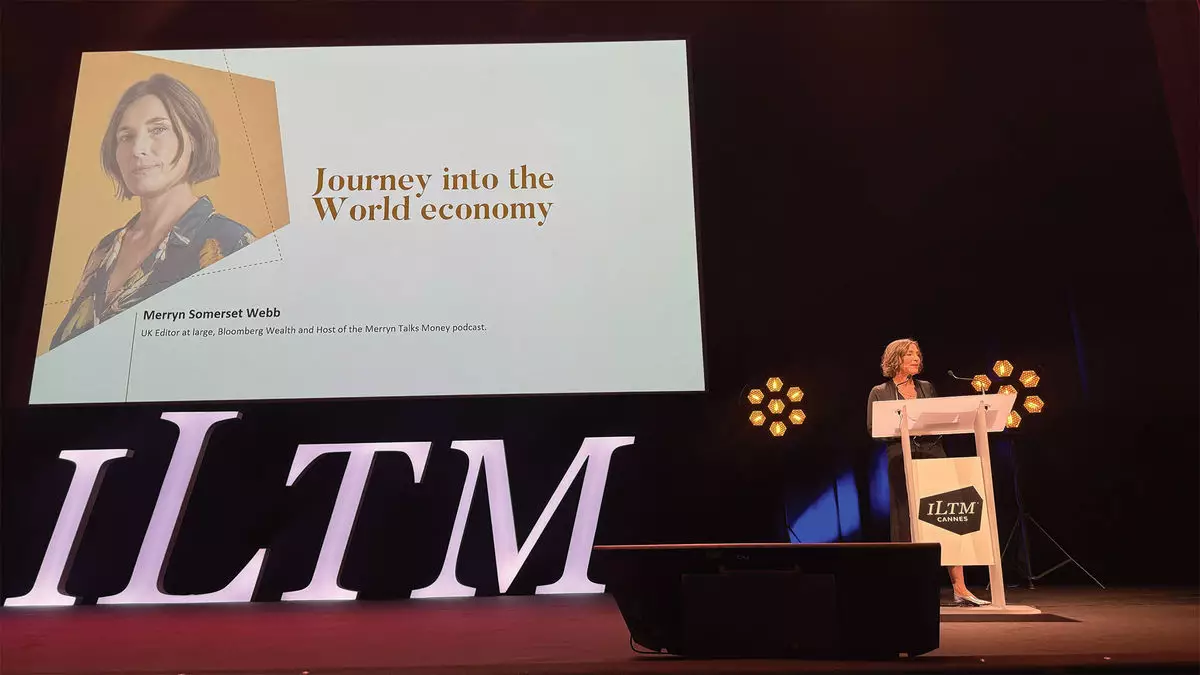Luxury travel has long been characterized by periods of rapid growth, but recent discussions at the International Luxury Travel Market (ILTM) in Cannes suggest that this sector’s prosperity is not nearing its conclusion. Despite numerous global challenges, the industry is experiencing a transformative phase that could ensure its continued expansion. Experts gathered at this prestigious event highlighted significant trends and dynamics that indicate a bright future for luxury travel, reframing the narrative around an industry often perceived as vulnerable.
Merryn Somerset Webb, the U.K. editor at large at Bloomberg Wealth, emphasized the multifaceted challenges currently facing the global landscape. Geopolitical instability, demographic shifts with aging populations and declining birth rates, and increasing defense expenditures can all impose substantial stresses on consumer confidence and economic stability. However, Webb’s address was not entirely pessimistic. She asserted that these challenges are being countered by emerging opportunities, primarily driven by changing consumer behaviors post-pandemic.
According to Webb, we are witnessing what she termed “the greatest transfer of wealth in known history.” With baby boomers poised to leave behind an estimated $72 trillion, younger generations are inheriting a wealth that many are inclined to spend on experiences rather than material possessions. This significant shift in spending behavior positions luxury travel not just as a niche market, but as a fundamental element in the lifestyle of younger affluent individuals. Webb predicts a growth rate in global travel that could double the rate of GDP growth, projecting an increase of about 8% to 9% annually over the next decade.
Key players in the luxury travel arena are proactively adapting to this evolving marketplace. For instance, Alex Schellenberger, the senior vice president of brand for the Mandarin Oriental Hotel Group, spoke to the emerging demographic dubbed the “Trust Fund Young-Gen.” This group prioritizes exclusive experiences that cannot be bought—highlighting the need for luxury brands to offer unique, curated experiences beyond the conventional amenities of high-end accommodations. Schellenberger’s comments underscore the necessity for luxury brands to engage with a highly discerning consumer base that values authenticity and personalization.
Marriott International echoes this sentiment as it reshapes its luxury strategy to appeal to younger generations. With millennials and Gen Z now comprising a substantial portion of luxury travelers—projected to reach 80% by 2030—the company is prioritizing adventure and experiential offerings. Tina Edmundson, Marriott’s president of luxury, noted that these demographics are inclined toward outdoor experiences. The rise in demand for tented lodges and camps, especially in vibrant locales like Africa, reflects a growing inclination for immersive travel experiences that resonate with younger travelers’ values.
The definition of what constitutes a luxury traveler is evolving. Previously, the focus was primarily on high-net-worth individuals, but there is a burgeoning demographic of aspirational travelers willing to invest significantly in premium experiences. Edmundson highlighted that 35% of luxury travelers do not fall into the ultra-high-net-worth category, yet they express a readiness to spend up to 50% of their income on high-quality travel experiences. This insight reveals an opportunity for the luxury sector to expand its reach by engaging with younger travelers who do not necessarily fit traditional luxury profiles but aspire to experience the finer aspects of travel.
The growth trajectory of the luxury travel segment is firmly backed by encouraging sales figures. Matthew Upchurch, CEO of Virtuoso, noted a remarkable 14% increase in annual sales, reaching an impressive $35 billion. More strikingly, there has been a 42% rise in bookings for ultra-high-end trips costing $50,000 or more. Such statistics are indicative of a robust demand for luxury travel experiences, reinforcing the perspective that financial backing and consumer enthusiasm are very much alive.
Similarly, Lauren Alba from The Leading Hotels of the World reported sustained growth, with 45 consecutive months of revenue increases and a notable surge in bookings for 2025. This upward trend serves as a compelling testament to the resilience of the luxury sector, further emphasized by the record turnout at the ILTM Cannes, which attracted around 10,000 participants this year.
In an era marked by uncertainty, the luxury travel industry is proving its capacity to innovate and adapt. Far from reaching a plateau, the insights shared at ILTM Cannes suggest a future ripe with opportunities for growth driven by shifting consumer priorities and a profound wealth transfer. By embracing the nuanced needs of younger luxury consumers and promoting unforgettable travel experiences, the sector is not just surviving but thriving. As Matthew Upchurch aptly stated, history shows that disruptions and challenges often serve to strengthen the allure of travel.

